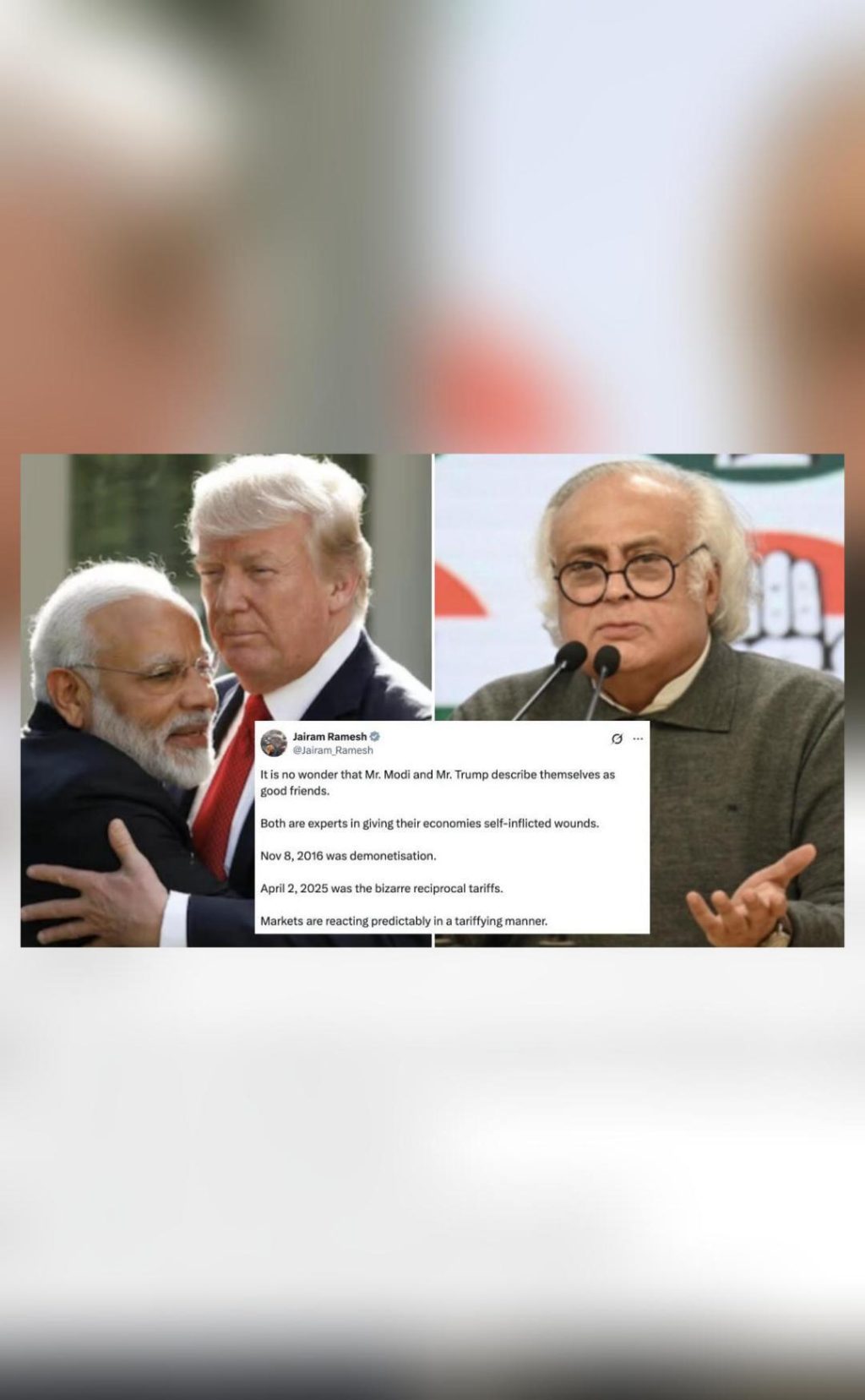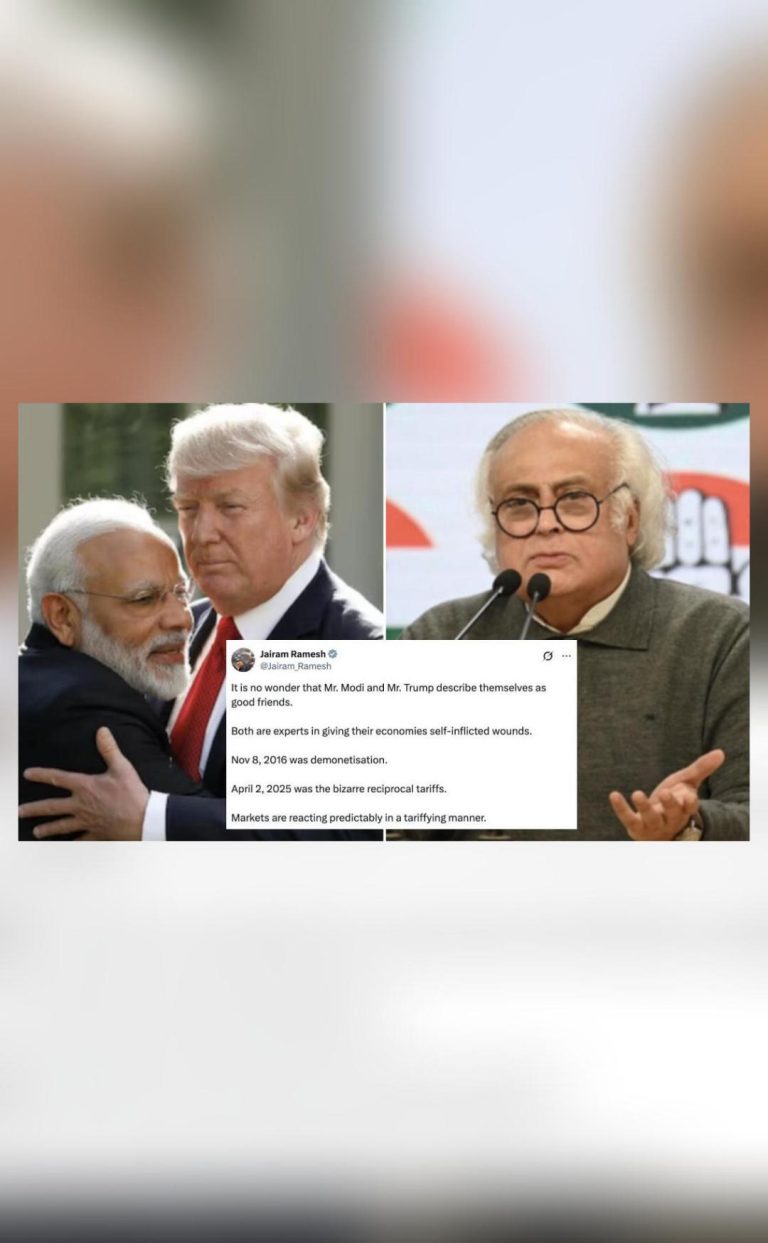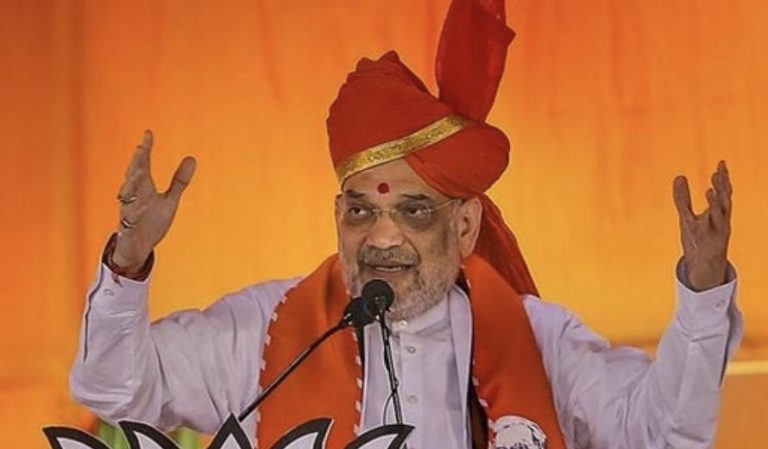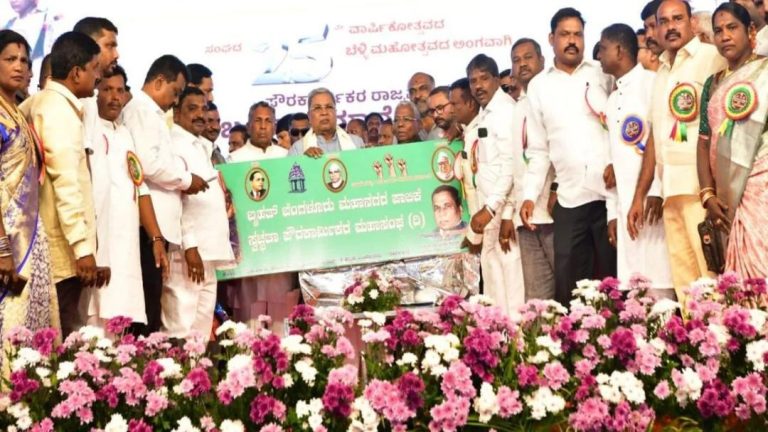
Modi & Trump Giving Their Economies Self-Inflicted Wounds: Jairam
The global economy has been left reeling after the White House announced tariffs, leading to a sharp decline in global markets. The news sent shockwaves across the globe, with the Sensex opening over 3,900 points lower and the Nifty opening over 1,000 points below. Amidst the chaos, Congress leader Jairam Ramesh has come out with a scathing attack on Prime Minister Narendra Modi and US President Donald Trump, saying that both are experts in giving their economies self-inflicted wounds.
In a tweet, Jairam Ramesh wrote, “It’s no wonder that Mr. Modi and Mr. Trump describe themselves as good friends. Both are experts in giving their economies self-inflicted wounds.” His tweet comes at a time when the global economy is already facing numerous challenges, including trade wars and recession fears.
Ramesh’s comments are not the first time he has criticized the economic policies of the Modi government. In the past, he has been vocal about the government’s handling of the economy, particularly its handling of the GST (Goods and Services Tax) and the demonetization of high-denomination currency notes.
However, Ramesh’s comments this time are particularly significant given the current economic climate. The global economy is facing numerous challenges, including trade wars and recession fears. The tariffs announced by the White House are likely to further exacerbate these challenges, leading to a slowdown in economic growth.
The impact of the tariffs is already being felt across the globe. Many countries have announced retaliatory measures, while others have suspended trade talks with the United States. The tariffs are also likely to lead to higher prices for consumers, particularly in industries such as manufacturing and agriculture.
In India, the impact of the tariffs is likely to be particularly significant given the country’s dependence on trade with the United States. India is one of the largest recipients of American aid, and any disruption to trade between the two countries could have serious consequences for the Indian economy.
The Modi government has been criticized for its handling of the economy, particularly its handling of the GST and demonetization. Many economists have argued that these policies have led to a slowdown in economic growth, and that the government’s failure to address these issues has only made things worse.
Ramesh’s comments are a blow to the Modi government, which has been struggling to defend its economic policies. The government has argued that its policies are necessary to reform the economy and make it more competitive, but many have criticized the government for its handling of the economy.
The impact of the tariffs is not limited to India alone. Many countries around the world are facing similar challenges, and the global economy is likely to be severely impacted by the tariffs. The World Trade Organization (WTO) has warned that the tariffs could lead to a global trade war, and that the consequences could be severe.
In conclusion, Jairam Ramesh’s comments are a stark reminder of the economic challenges facing the world today. The tariffs announced by the White House are likely to have far-reaching consequences, and the global economy is likely to be severely impacted. The Modi government has been criticized for its handling of the economy, and Ramesh’s comments are a blow to the government’s reputation.
As the world grapples with the challenges facing the economy, it is essential that leaders like Modi and Trump take a step back and consider the consequences of their actions. The global economy is complex and interconnected, and any disruption to trade between countries could have serious consequences.
In the end, it is the ordinary people who will suffer the most from the tariffs. Higher prices for goods and services, job losses, and a slowdown in economic growth are all potential consequences of the tariffs. It is essential that leaders like Modi and Trump take a more nuanced approach to trade policy, one that takes into account the needs of the global economy and the impact on ordinary people.
News Source:






